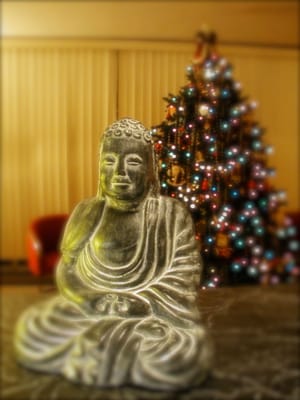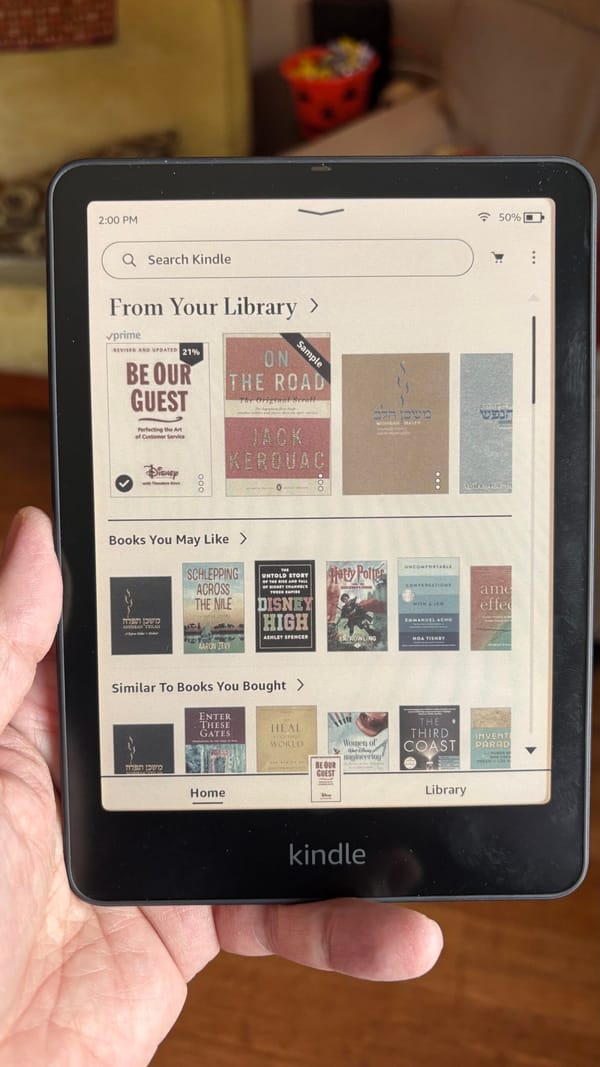Sum of the Dharma
Spiritual awakenings take by surprise reluctant souls and lead them on unexpected journeys. A truism so simple, no elative adjectives needed. For reluctant souls, any spiritual journey at all is, by definition, an extraordinarily, very, very unexpected one. God knows, I was surprised.

Spiritual awakenings take by surprise reluctant souls and lead them on unexpected journeys. A truism so simple, no elative adjectives needed. For reluctant souls, any spiritual journey at all is, by definition, an extraordinarily, very, very unexpected one.
God knows, I was surprised.
Raised in a traditional Roman Catholic family, like most adherents born into the faith of their ancestors, I was never asked my opinion on the matter, given an explanation or justification for the object of my indoctrination. God may have given man free choice, but that emancipatory freedom never trickled down to me as I sat on the edge of my bed at the age of eight, wondering night after night why I was never asked what I believed deep inside.
That spiritual disconnect likely explains my teen years, spent mostly in the New Age section of one bookstore after another, exploring less traditional opinions on the universe and life within it, feeling quite comfy with eastern philosophy, but never finding an actual tradition. And after Catholicism, anything with the word "religion" in it was firmly crossed off my list, anyway.
Religious friends and boyfriends came and went, questioning my spiritual identity crisis, generally in the most myopic of manners ("You know, if you were baptized Catholic, then you're always Catholic--you can't change that!"), every lifetime guarantee of being stuck with my birth religion pushing me ever further into an agnostic existence.
Not that there's anything wrong necessarily with agnosticism, or atheism, or anyone else's beliefs about the nature of all that is. But I wanted to find my such beliefs on my own, instead of feeling forced into them. Forced into Catholicism. Forced into agnosticism. Often I wondered if I would have spurned my family's religious heritage if I had been born into a Protestant faith, or Jewish.
So I settled into a spiritually agnostic adulthood. Something greater was out there, I could feel it. I saw the turning of karma. I recognized happy coincidences as minor miracles. I felt the subtle inner tug of a reality touchable but not entirely knowable--yet a matter-of-fact part of my daily life. But I resigned myself to the idea that I'd never be able to make any more sense of my spiritual purpose than that, and went on.
I didn't see the sudden renewal of my spiritual journey coming when it suddenly slammed into me last New Year's Day. I guess, when you date a devout adherent to a major faith like I do, something is bound to rub off. For whatever reason, on January 1, 2006, I decided to go in search of fellowship.
I took the safe road. Not feeling myself a Christian but not sure where else to look, I began to explore Unitarian Universalism. I even dragged Christian-and-nervous Devyn to a service. We both left perplexed. I loved how UU upheld principles of love and unity and kindness and left for the worshipper to decide how to conceive of God. But Devyn and I both felt uncomfortable sitting through a church service so close to a Christian service that, for us anyway, the entire affair just didn't connect. Still, on that day, I started to recall my long-dormant longing, as if some inner ball of spirituality had started rolling again.
That ball continued downhill, gaining speed, when I discovered Jack Kerouac and the Beat poets last spring. I was enthralled by the lack of conventions and social mores in the writing. Even more, I was touched by the childlike reliance on Buddhist teachings--dharma--that, for a time anyway, helped Kerouac and his cohorts transform misery into mindfulness and joy. It was a knack that I envied.
When my extraordinary media-relations friend, Sarah, brought me on board last fall for the 7 Days @ Minimum Wage video-blog campaign, I was excited to learn of her Buddhist practice. Visiting her in Washington, D.C., after Election Day (a follow-on trip to my litmus-test weekend in New York to see Portugal's Jose and Gotham's Adam and Vicki), when she invited me to a dharma talk on anger management, my curiosity was positively piqued.
Sarah wasn't yet a Buddhist when we worked together in New York in the late 1990s. That came later, and in D.C. it appeared to be serving her well. Regardless of her media success, life isn't perfect for Sarah (and she'll be the first one to tell you). But happiness and clarity and compassion remain fundamental aspects of her life. I wanted to know how she managed a trick like that. I wanted to know more. The morning of the dharma talk came. I spent the day on the Mall, instead. I still wasn't ready to open up.
But when I returned to Chicago, I realized, finally, that I was. I researched Buddhism's history and teachings on the Net. I began to devour Buddhism-related texts and works by Buddhist authors. I took every opportunity to pick my Korean Buddhist friend ("Dammit, I don't look like Margaret Cho") Rozella's brain about her practical experience of Buddhist philosophy.
And I started to scare the hell out of Devyn.
Not that I was ready to call myself a Buddhist--I've still only scratched the surface of understanding the many lineages of Buddhist thought and variants of Buddhist practice. But Devyn is a Christian, and the idea of a 2,600-year-old spirituality associated with chubby, seated, golden icons but without an opinion about God made him feel morally at sea.
I could understand why. From a Christian perspective, the definition of religion is the topmost one found in the dictionary: a system of beliefs based around a deity--based around God. But Buddhism's definition of religion is generally one of the "alternate" definitions, listed unceremoniously by number beneath the more common understandings of the word. Buddhism is a religion based around a group of teachings. There is no required belief in God. There is no opinion about God, at all, beyond a deep respect for other religions and teachers and other people's spiritual journeys. Buddhism is about our relationships with ourselves and with each other.
As Rozella would say, "Now don't go worshiping the Buddha or anything. That's so not the point."
There are no leaps of faith in Buddhism. You're free to consider the dharma--the teachings--and determine for yourself their application to your life. The more I turned the dharma over in my mind, the quicker my inner ball continued down that hill. Much made inner sense for me: the idea of suffering (dukkha) and happiness as two sides of the same coin; the importance of living life in the present moment as a means to overcome unhappiness and reach true joy; the rejection of dualistic concepts--including the idea of a discrete self set apart from the rest of the world on some sort of dangerously walled-off spiritual island; the seminality of universal love and compassionate acts in the here and now.
Devyn and I discussed our concerns, and I kept exploring. I began a regular meditation practice; I adopted mindfulness in my daily actions. I kept reading. And when trauma arrived before year's end, I applied what I had learned.
When Devyn and I arrived at the brink of separating; when I left my day job; when Devyn ended up in the emergency room during the holidays with salmonella. I breathed. I stayed in the moment. I reached way down and came back up with love and understanding.
So did Devyn. Imagine my surprise when one of my Christmas presents ("You have to open this one last...") turned out to be a chubby, hefty statue of the seated Buddha. Truly, the real gift was Devyn's own mindfulness and compassion towards my spiritual journey--a gift for which I remain grateful, as I continue to support him in exploring his Christian faith.
What can I say? In my life, I haven't ever felt more alive, content, loving. I haven't ever felt more connected to the world around me and the people in it. I haven't ever felt more awake.
Or more surprised.
I have considered the dharma. I am no longer reluctant.
Albeit a new practitioner, I am an adherent to a 2,600-year-old, intensely compassionate tradition (file me under Zen if you take note of such things). I recognize the wisdom of the Four Noble Truths. I embrace an empty, signless, aimless world united by love. I take refuge.
So, thank you, Sarah, Rozella, Devyn. Thank you, Jack. Thank you, Chicago's 1893 Columbian Exposition, while I'm at it (I bet most of you didn't know Buddhism was most soundly introduced to America via the midwest, during the Chicago fair's World's Parliament of Religions).
Thanks for something about which I'll always be grateful.
Thanks for getting the ball rolling again.




